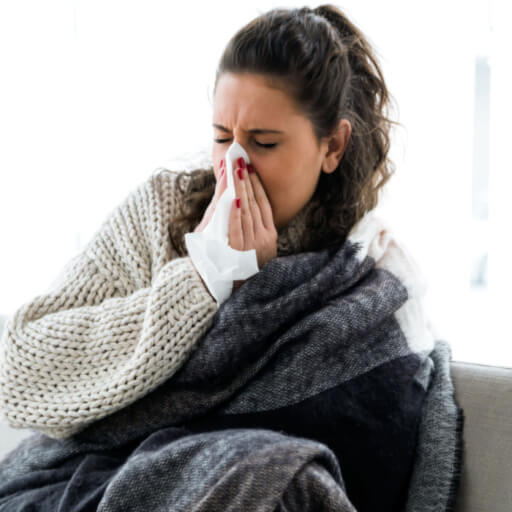Monsoon rain brings a great respite after the sultry summers. However, this season worsens the condition of patients with asthma. The change in weather conditions can trigger allergies leading to the chronic condition. Therefore, it becomes crucial for asthmatic patients to take special care during rains.
What you need to know:
How does the monsoon season trigger asthma?

Asthma is caused owing to allergens present in the atmosphere, such as pollen, dust mites due to increased humidity, pet dander, dampness-induced fungus, and viral infections. There is less sunlight during monsoons as the sky is covered in grey clouds. This leads to less exposure to vitamin D, making you susceptible to catching the flu or cold and aggravating your asthma attack. The airway passages of people experiencing asthma can get constricted, making it difficult for them to breathe normally. This results in wheezing, coughing, tightness in the chest, and shortness of breath, which are common asthma symptoms.
Preventive measures to control asthma during monsoon
Take a look at a few preventive measures you can undertake to control your asthma during monsoon:
- Have warm drinks. Hot soups can help de-clog your nasal passages. Herbal teas with a drop of honey can also relieve you of nasal congestion.
- Natural home remedies include concoctions (kadha) of ginger, black pepper, honey, garlic, turmeric, and warm water that can boost your immunity. They exhibit antibacterial, antiviral, antimicrobial, and anti-inflammatory properties.
- If you catch a whiff of cold, boil water with cumin seeds and inhale steam to dilate your bronchial passages.
- Try to stay indoors. If you go for a run or jog during the summer season, replace it with a treadmill workout during the rainy season.
- Practice breathing exercises during the monsoon. Diaphragmatic breathing maximizes the distribution of air in your lungs. Nasal breathing is better than mouth breathing since it adds warmth and humidity to the atmosphere, reducing asthma symptoms.
- If exercise triggers your allergies, you can try practicing yoga. Yoga poses like the bridge pose, cobra pose, and sitting half-spinal twist posture. These yoga asanas open up your chest and lungs. They also improve the circulation of blood and oxygen throughout the body.
- Keep pets out of your bedroom to prevent the dander from spreading. Wear a mask while vacuuming and cleaning.
- House dust mites are the most common allergen that occurs thrice during monsoons. The feces of these microscopic insects cause a histamine reaction, leading to the tightening of muscles surrounding the airways in your lungs and producing mucus. The cloudy weather leads to little sun-drying of bed sheets. Try washing your sheets often in hot water.
- Keep your indoor plants outdoors to prevent the growth of microbes.

With the onset of the monsoon season, keep medications and equipment handy to keep asthma allergies at bay. Keep your inhaler handy. Consult your doctor if your asthma worsens.
If you want to assess your asthma condition, then you can fill up our online Asthma Control Questionnaire. This can help you avoid triggers and minimize asthma symptoms. Actively participate in the Activ Living community and get more information on nutrition and mindfulness.





 1800-270-7000
1800-270-7000










